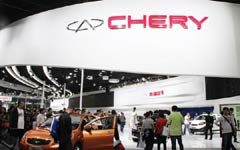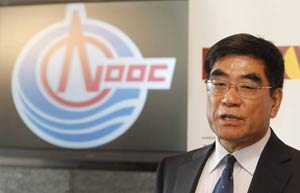Car firms make inroads in Brazil
By Li Fusheng and Li Fangfang (China Daily) Updated: 2014-07-17 07:17"Local production efforts will help them avoid high taxation and firmly establish themselves in the markets in the long run," said Cui Dongshu, deputy secretary-general of the China Passenger Car Association.
Cui said a weakened Brazilian economy and taxation policy changes have caused a serious decline in the number of Chinese passenger vehicles and trucks imported to the country.
 |

|
Statistics from the National Federation of Automotive Vehicle Distributors in Brazil showed that in the first five months of 2014, total automobile sales dropped to 1.4 million units, down 5.5 percent year-on-year.
In the first half of 2013, Chery's sales in Brazil dropped by 72.5 percent from a year earlier to 2,504 units, according to the company.
Brazil tightened its tax policy on imported vehicles in September 2012 to protect the local automotive industry.
The government raised taxes by 30 percentage points on imported cars and trucks, as well as those produced in Brazil and other Mercosur trade bloc countries that failed to meet the 65 percent localization rate.
"The high tariffs on imported vehicles have led to an erosion of the low-price advantage that China-built vehicles hold," said Namrita Chow, principal analyst at the IHS Automotive consulting firm in Shanghai.
"They need local production if they are serious about winning more market shares from existing and new players," Chow said.
- GM pushes new strategy as Chinese shift to family cars
- CSSC-Wartsila sign JV to build engines
- Lujiazui commercial properties exceed Wall Street
- China eyes $500b annual trade with LatAm in 10 years
- Ex-Ford chief Mulally joins Google's board
- Food fair to open in Quanzhou
- China opposes US tire probe
- Alibaba takes full control of AutoNavi
















